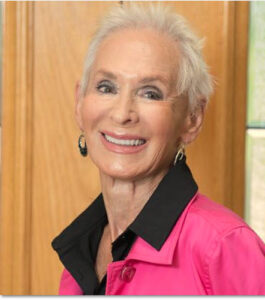
l Overheard from a healthy 83-year-old man:
Overheard from a healthy 83-year-old man:
“I am a completely illiterate computer person, not tech-savvy at all. I have no idea how to transfer photos from my cameras to the computer, so I will have to wait till I find a little kid to do it for me.”
He laughed with a sense of satisfaction, probably thinking he was being “cute.” (Old people seem to think it’s “cute” when they feign incompetence or do or say inappropriate or silly things because it’s a culturally expected behavior for “old” people.) The most egregious propagators of the myth of old age incompetence are old people who malign themselves with disparaging names such as “Old Geezers” or “Old Farts” and think it’s funny to tell each other demeaning “old people jokes.”
Too many old people buy into the myth that they can’t or are not supposed to be able to learn new or “complicated” things. As toddlers, kids learn that “fact” about old people when parents read stories about Grandpa, who doesn’t do much except sit in an easy chair with the grandkids on his knees, and Grandma is portrayed as a shapeless blob who bakes cookies and babysits.
The propagation and promotion of the “old age incompetence” myth never stops. You may have seen the TV commercial where grandkids’ kids arrive at the grandparents’ home for a visit. Instead of a hug for the kids, Grandma (or was it Grandpa?) shoves a tangle of wires and a techie gadget at the kids and tells them to fix it.
TV commercials, especially for medications and insurance products, typically show older men and women tending flowers in the garden or looking sad, inept, and needing a caretaker. That’s supposed to be how older people see themselves and identify with the message. Such messaging promotes a dependent stereotype of older people. Many older people need and use advertised “senior” products and services. How about developing messaging that shows an accomplished older person in a productive position? It would send an entirely different message to “old” people.
The myth continues in other ways. For example, obnoxious “you are over the hill” greeting cards that “old” people send to each other at age 50, if not sooner. Typically, such cards focus on health conditions “old people” are supposed to suffer.
Here we are in 2024, and we still believe that as aging advances, “old age decline” is inevitable and that it’s appropriate to treat old people as if advancing age automatically rots the brain.
Origin of The Myth of Old Age Incompetence
When did the myth of elder incompetence start, and why does actual incompetence persist? It began with institutionalizing retirement via the Social Security Act in the 1930s. Retirement legitimized “old age incompetence” over the years by gradually developing a well-defined leisure-oriented senior mindset and lifestyle. It legitimized the mantra “I worked all my life and deserved my retirement” as well as the idea that “it’s time for the younger generation to take care of me, and I don’t have to learn or know what kids know, so I’ll go play golf or Bingo and just enjoy myself.” Never mind that the adoption of such a mindset aids and abets decline.
The reality is that the brain and body need rigorous, constant challenges to remain viable and vital. That’s a given regardless of age, so it is not unrealistic or unfair to say that traditional, leisure-oriented retirement is probably the worst thing that has happened to healthy older people. I realize how incendiary that statement is, but it’s true.
Leisure-oriented retirement has been great for businesses that provide for retirees’ needs and wants, from medicine to housing to recreation. Propagating the myth of old-age incompetence has paid off for enterprising entrepreneurs and multinational corporations alike.
The moneyed pharmaceutical industry has convinced midlife people and medical practitioners alike that aches, pains, and other assorted annoyances can be fixed with a pill. Never mind that an improved diet would probably be a better solution than pills with potentially harmful side effects. However, paying attention to diet isn’t a significant part of the “groupthink” healthcare dialogue that most people have been conditioned to accept.
Since catering to old age decline is a massive part of the economy, there will be no call for change from financial winners in the old age industries. We can look to them to continue propagating and supporting the myth about the incompetence of older people.
The takeaway is this: If you are at midlife, approaching, or in early retirement, if you don’t want to end up a traditional, dependent little old man or woman, then disengaging from traditional group think that subliminally is assuring you that as you continue to age “old age decline” is inevitable. You have more control over how you age than you may think.
What you allow to go on in your head relating to the “proper” way to enjoy your retirement, the cultural norms you buy into, and the lifestyle you choose will determine how quickly decline takes place. Barring unavoidable health issues, claim and honor your individuality and your right to live how you want to live “out of the old age group” — with vibrant health and vitality as long as life lasts. Nothing is worse than becoming dependent when dependence could have been avoided by choosing to live a vigorous, nontraditional lifestyle before and into the retirement years.
Leave a Reply